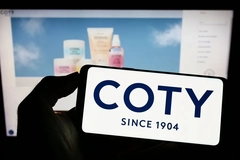Fragrance trends in the UK and France
Discover the latest perfume trends and consumer preferences in the UK and France

Fragrances can define emotions, evoke memories, and enhance personal identity. Consumers in the UK and France embrace fragrances as essential elements of self-expression and ambiance. Scents can bring comfort, allure, and confidence, shaping moods and spaces.
Innova Market Insights’ Innova360 research highlights evolving fragrance trends in these countries, spotlighting the consumer preferences, leading brands, and minimalist fragrance launches that drive these markets.
Consumer fragrance preferences
Personal care demands reflect simplicity and intentionality, with “skinimalist” scents increasingly gaining consumer attention. Minimalist routines in the UK and France drive demand for subtle, clean, and intimate fragrances. The “less is more” approach highlights a few key notes, ensuring each element stands out without overwhelming the senses.
Fragrances with “skinimalist” claims account for 15% of product launches in the UK and France over the past five years. Individuality through skin-like scents, elegance, and simplicity drives these preferences.
Fragrance trends indicate that 62% of consumers believe their perfumes are an extension of their personality and enhance self-expression.
Social media trends
Social media platforms like TikTok and Instagram have helped spread curiosity around skin-like scents. These intimate scents inspire beauty brands to innovate.
Fragrance trend research shows that 51% of consumers in the UK and France prefer fragrances that suit them as individuals. Skin scents should blend seamlessly with their natural body scent, creating a personal and intimate feel.
Musk fragrance leads in skin-like scents with a 69% CAGR over the past five years, followed by woody and vanilla fragrances. Fragrance houses are taking a “less is more” approach to attract consumers with simplified scents.
Fragrance houses are taking a “less is more” approach to attract consumers with simplified scents.
Leading companies and brands
H&M’s Modern Minimalist Eau De Toilette appeals to “skinimalist” consumers with notes of white musk, sandalwood, amber, and cashmere wood.
Similarly, Merit embraces “skinimalism” with its Retrospect fragrance less than four years after its launch. The brand partnered with Fanny Bal to combine vintage notes with a modern sensibility, embracing a nostalgic feel with intriguing, timeless layers. Key notes include bergamot, pear, and aldehydes at the top, jasmine, synthetic rose, rosemary, violet, and orris at the heart, and vanilla, musk, and moss at the base.
Meanwhile, Jil Sander’s “less is more” philosophy features in the Olfactory Series 1, focusing on minimalist design and sustainable practices. The six unisex fragrances include leaf, miel, black tea, earth, coffea, and smoke.
Fragrance positioning trends
Some 33% of UK consumers prefer floral fragrances, while 27% desire fresh/green scents. These preferences align with a minimalist lifestyle, with floral notes like jasmine and musk offering timeless elegance.
Fresh fragrances feature notes of sea salt and spray, earthiness. Brands leverage this opportunity by positioning fragrances that align with themes of gardens, English landscapes, and timeless elegance to connect with consumer lifestyles in the UK.
French consumers desire timeless scents that are elegant, powdery, warm, and floral woody. These fragrances reflect their cultural affinity for sensuality and sophistication, even within minimalist formulations.
Brands position themselves in this trend by utilizing ingredients like lavender, clary sage, pear, and raspberry for elegance, along with sandalwood for spicy sensuality, and tonka bean for a touch of seduction.  Social media platforms like TikTok and Instagram have helped popularize skin-like scents.
Social media platforms like TikTok and Instagram have helped popularize skin-like scents.
Fragrance multi-sets
Consumers indulge in brands that offer unique fragrance experiences with personal care multi-sets, including products like body wash, body lotion, and perfume that feel natural and remain throughout the day.
One in two consumers show interest in wellness and stress relief through bath and shower routines. This finding aligns with Innova’s top personal care trend, “Mind Dominates Matter,” highlighting how wellness and stress relief claims in personal care are evolving to provide strategic resolutions with psychodermatology and sleep care benefits.
What’s next in fragrance trends?
Social media influencers and content creators amplify the buzz around skin scents, paving the way for them to become a mainstream phenomenon. Milky scents offering a warm, skin-like experience with notes reminiscent of milk are gaining attention. These creamy, delicate aromas provide a comforting yet luxurious alternative to traditional fragrances.
Hair perfumes are also emerging as a notable trend. They offer a subtle, long-lasting scent that gently lingers without being overpowering.
As consumers seek new scent experiences, hair perfumes fit naturally into their fragrance routines. Social media drives interest in this trend, particularly among younger, fragrance-savvy demographics. Personalized fragrances, tailored to individual preferences and offering unique scent experiences, can stand out in the market.
As the wellness industry expands, fragrances with relaxing notes like lavender, chamomile, and eucalyptus gain more attention. The focus on well-being can drive further innovation in aromatherapy-based fragrances, targeting specific emotional and psychological benefits.
Additionally, brands can explore eco-friendly packaging and sustainably sourced elements to attract environmentally conscious consumers.
This article is based on the Innova Market Insights report “Trending in ‘Skinimalist’ Scents in the UK & France.”



















